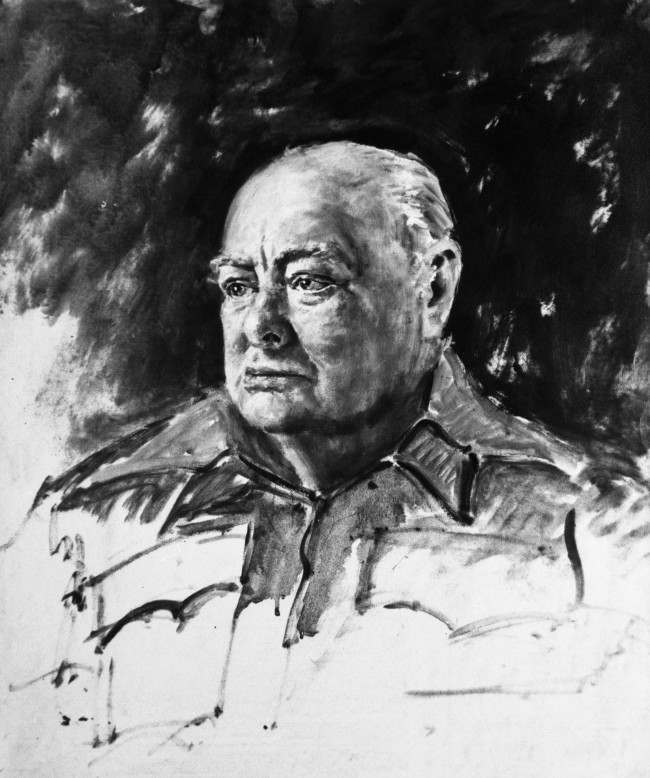The Black Dog of Depression: The WHO Takes Up Where Churchill And Johnson Left Off
THE Black Dog Dog of depression is hideous. Winston Churchill used the phrase black dog to describe his own moods.

This followed Samuel Johnson, who wrote on 17 June 1783:

The black dog I hope always to resist, and in time to drive, though I am deprived of almost all those that used to help me. The neighbourhood is impoverished. I had once Richardson and Lawrence in my reach. Mrs. Allen is dead. My house has lost Levet, a man who took interest in everything, and therefore ready at conversation. Mrs. Williams is so weak that she can be a companion no longer. When I rise my breakfast is solitary, the black dog waits to share it, from breakfast to dinner he continues barking, except that Dr. Brocklesby for a little keeps him at a distance. Dinner with a sick woman you may venture to suppose not much better than solitary. After dinner, what remains but to count the clock, and hope for that sleep which I can scarce expect. Night comes at last, and some hours of restlessness and confusion bring me again to a day of solitude. What shall exclude the black dog from an habitation like this?
Neuroskeptic says talking up the successful depressives is not helpful:
In the case of depression, the core stigma is that depression is a weakness, a moral failing. That depressed people are soft, weak, pitiable. This attitude is specific to depression – not even bipolar disorder is seen in the same way, let alone the other diagnoses. They have their own stigmas. Depression’s is weakness.
Now this is why Churchill is a good counterexample. Not just because he’s famous or ‘great’, but because he was famously tough. He faced down Hitler. He was blood, sweat and tears. In the most famous photos of him (and they are famous, out of all his photos, because they correspond to the mental image) he is almost unsmiling – but never despairing. Just resolute.
That he experienced depression undermines the myths surrounding that condition, in a way that an entertainer or other generic celebrity wouldn’t.
There is a stigma in depression. Katherine Sharpe:
Modern conversations about depression often return to the idea that the illness carried a terrible stigma in ages past. It is likely that this sense of depression’s stigmatization comes to us from the Middle Ages, when a religious tradition, familiar then but only a muscle memory to us now, identified depression as a type of sin. Called “acedia” or “wanhope” (literally, “faint hope”), it was considered a subset of the deadly sin of sloth. Its major feature was a loss of faith in one’s own worthiness of salvation and mercy in the eyes of God.
So. Get up. Walk it off. No. It;s not so easy. Maura Kelly:
[I]t’s true; psychotherapy and exercise can help (as can meditation); patients should try them–and doctors should suggest them–before turning to pharmaceutical solutions. Nonetheless, in some cases–like mine–years of therapy doesn’t solve the problem, and neither does daily exercise.
And what [Marcia] Angell doesn’t say [in her article against psychiatric medications from last year] is that good therapy is often very expensive–far more expensive than most people can afford, particularly because so many health insurance plans provide little or no coverage for it–whereas less-than-excellent therapy can contribute to a sense that one’s problems are intractable, that things will never change. (I speak from experience.)
Perhaps it’s also worth noting that if developing a fitness habit were easy for the average person, then the obesity epidemic wouldn’t be the most serious and costly health problem facing our country right now. And many seriously depressed people have a difficult time getting out of bed, to say nothing of going for a thirty-minute jog–though for some of us, like myself, our mental illness happens to come with a degree of obsessive-compulsiveness that often manifests itself at the gym.
The World Health Organisation have produce this video. It’s called I had a black dog, his name was depression:
Does the WHO get it? Allie Brosh does:
Trying to use willpower to overcome the apathetic sort of sadness that accompanies depression is like a person with no arms trying to punch themselves until their hands grow back. A fundamental component of the plan is missing and it isn’t going to work.
It’s an awful illness. Anyone who has lived with it or lived a sufferer will understand. The rest of us should try to…
Posted: 13th, December 2013 | In: Reviews 0 Comments | TrackBack | Permalink


